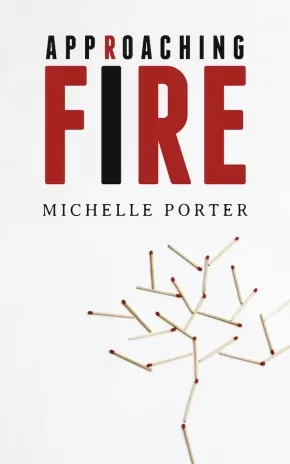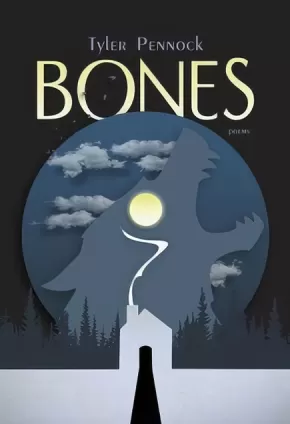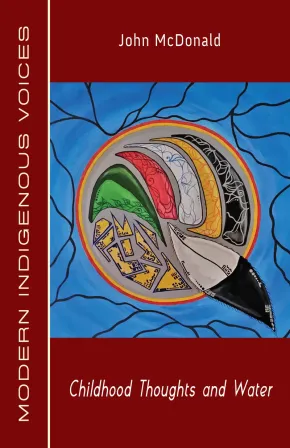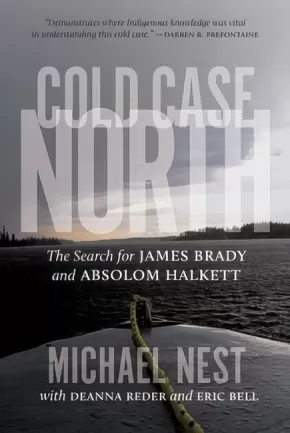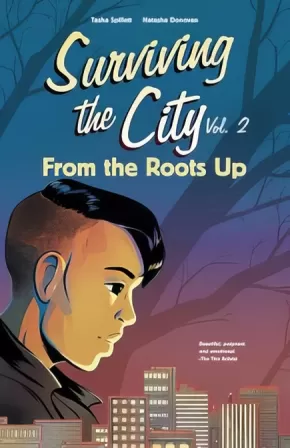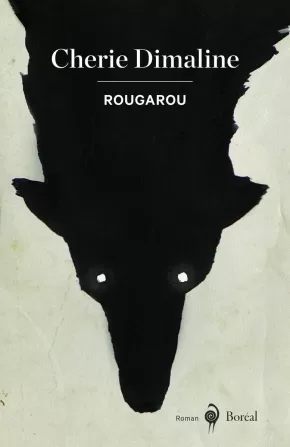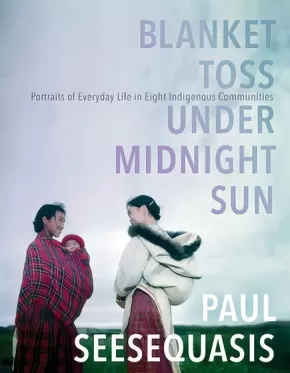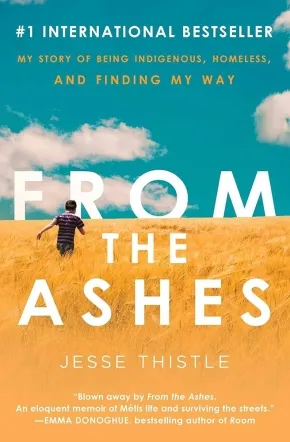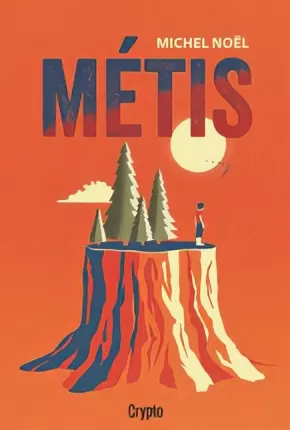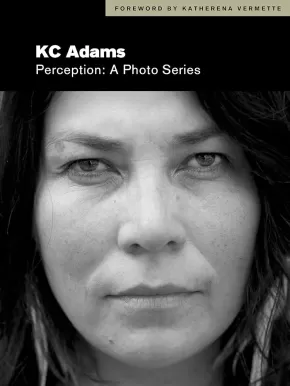
Métis
106
-
120
of
176 Results;
Sort By
Go To
of 12
Approaching Fire
$19.95
Format:
Paperback
Text Content Territories:
Indigenous Canadian; Métis;
Reading Level: N/A
ISBN / Barcode: 9781550818536
Synopsis:
Synopsis:
In Approaching Fire, Michelle Porter embarks on a quest to find her great-grandfather, the Métis fiddler and performer Léon Robert Goulet. Through musicology, jigs and reels, poetry, photographs, and the ecology of fire, Porter invests biography with the power of reflective ingenuity, creating a portrait which expands beyond documentation into a private realm where truth meets metaphor.
Weaving through multiple genres and traditions, Approaching Fire fashions a textual documentary of rescue and insight, and a glowing contemplation of the ways in which loss can generate unbridled renewal.
Awards
- The Miramichi Reader's 2020 Most Promising Author Award
Reviews
“I wanted to write in a magical and poetic voice, but more than that I wanted to read magical books - true and straight up poetic stories that fulfill the past. Michelle is such a writer. This book is the art Louis spoke of that begins a much needed conversation: Métis nation or Manitoba?” - Lee Maracle
“I've never read a book quite like this before… Approaching Fire is a documentary you can hold in your hands, in which, rather than being a passive witness to scenes unfolding, you become immersed in a river of poetry. Author Michelle Porter uses a mixture of genres to create an account of her journey to uncover the history of her Métis roots, stretching from Newfoundland to British Columbia, Alberta to Saskatchewan, and finally digging deeply into Manitoba. Michelle travels through the stories she was raised on, using them as a base from which to understand the accounts of others, learning all she can about her Great Great Grandfather, Léon Robert (Bob) Goulet, renowned fiddler and performer. Her Pépé. In his story, her story, a wider history of the Métis people is told. A history of racial discrimination, stolen land rights, and the question of what truly unites and defines Métis identity. This book blazes with poetic beauty, and a voice Canada needs to hear.”— More Books Than Days
Additional Information
192 pages | 5.25" x 8.25" | Paperback
Bones
$20.00
Format:
Paperback
Text Content Territories:
Indigenous Canadian; First Nations; Cree (Nehiyawak); Métis;
Grade Levels: University/College;
ISBN / Barcode: 9781771315210
Synopsis:
Synopsis:
Poems about a young two-spirit Indigenous man moving through shadow and trauma toward strength and awareness. Bones, Tyler Pennock's wise and arresting debut, is about the ways we process the traumas of our past, and about how often these experiences eliminate moments of softness and gentleness. Here, the poem's journey inward, guided by the world of dreams, seeking memories of a loving sister lost beneath layers of tragedy and abuse. With bravery, the poems stand up to the demons lurking in the many shadows of their lines, seeking glimpses of a good that is always just out of reach. At moments heartrending and gut-punching, at others still and sweet, Bones is a collection of deep and painstaking work that examines the human spirit in all of us. This is a hero's journey and a stark look at the many conditions of the soul. This is a book for survivors, for fighters, for dreamers, and for believers.
Reviews
"Here is a spare and urgent voice that speaks of 'wounds and beauty,' that gestures to a story of trauma and abuse while offering us a potent journey of self-reckoning and reclamation. Bones entwines brutality with the deepest tenderness and in its clear-eyed way asks us, as poetry must, to re-see the world." --Catherine Bush, author of Accusation and The Rules of Engagement
"Tyler Pennock's poetry unfurls like breath: measured, light, caught, whispering, and vital. It charts memory with a steady hand and unerring allegiance to locating the 'beauty/in terrible things.' Bones addresses the effects of intergenerational, state-sponsored trauma with enviable grace, inscribing and affirming life on the other side of overwhelming pain, abuse, and grief. It carries on, resilient, defiant, gazing at the stars, one breath at a time." --Laurie D. Graham, author of Settler Education
"Tyler Pennock's Bones is a soft meandering through the memories of the narrator's hearthome: a place in which trauma, kinship, abuse, and nostalgia cradle one another in a circle. Here, poetics are deployed to inspect the most minute of objects with such wild abandon that the narrator transplants us into a world rife with sharpness so as to make the image complete, focussed, lifelike, photographic even as he continually 'wish[es he] were like water'. Here we find memory and dream animated in equal measure: two spirits sitting in a basement, a headless mother, a white bear, wihtiko, and a sister slowly vanishing. Lyrical, witty, heart-wrenching, and empowering, Pennock's debut book of poetry is a contemplative epic asking us to ponder the ethics of remembrance in all of its lacings of razing and revitalization." --Joshua Whitehead, author of Full-Metal Indigiqueer and Jonny Appleseed
Additional Information
104 pages | 6.00" x 8.75"
Childhood Thoughts and Water
$16.95
Format:
Paperback
Text Content Territories:
Indigenous Canadian; First Nations; Cree (Nehiyawak); Plains Cree; Muskeg Lake Cree Nation; Métis;
Grade Levels: 12; University/College;
ISBN / Barcode: 9781772311198
Synopsis:
Synopsis:
Childhood Thoughts and Water is a collection of Beat Poetry, Spoken Word, Performance Art and Lyrical Verse. This is a work which journeys into the memories and events of an Urban Indigenous warrior's struggles to reconnect with a language and culture that is seemingly always almost out of reach. The common theme of reconnecting with nature and with water is interspersed with the imagery of childhood recollections and anecdotes about life and love, aspirations and defeats, and the desire to achieve greatness in spite of the obstacles and barriers inherent in a life lived on the fringes, in the shadows and on the streets, in the spotlight and behind the backstage curtain.
Educator & Series Information
This book is part of the Modern Indigenous Voices series.
Additional Information
80 pages | 5.50" x 8.50" | Paperback
Cold Case North: The Search for James Brady and Absolom Halkett
$24.95
Format:
Paperback
Text Content Territories:
Indigenous Canadian; First Nations; Cree (Nehiyawak); Métis;
Grade Levels: 12; University/College;
ISBN / Barcode: 9780889777491
Synopsis:
Synopsis:
For fans of true crime, an unsolved mystery of missing persons, police conspiracies, and private investigations in an Indigenous community in northern Canada.
Métis leader James Brady was one of the most famous Indigenous activists in Canada. A communist, strategist, and bibliophile, he led Métis and First Nations to rebel against government and church oppression. Brady’s success made politicians and clergy fear him, and he had enemies everywhere.
In 1967, while prospecting in Saskatchewan with Cree Band Councillor and fellow activist Absolom Halkett, both men vanished without a trace from their remote lakeside camp. For 50 years rumours swirled of secret mining interests, political intrigue, assassination, and murder. Cold Case North is the story of how a small team, with the help of a local Indigenous community, exposed police failure in the original investigation, discovered new clues and testimony, and gathered the pieces of the North’s most enduring missing persons puzzle.
Reviews
“This engrossing account charts the efforts of three dedicated people to determine the fate of two missing Indigenous men in the north of Canada. [...] Meticulously researched, this smoothly written tale of injustice showcases the authors’ tenacity and arouses the reader’s indignation. This is a scathing rebuke of the RCMP’s failure to take the case of missing Indigenous people seriously.” —Publisher's Weekly
“Like too many cases involving missing and murdered Indigenous people, authorities failed to ensure that Brady and Halkett’s deaths were properly investigated. This book helps get to the bottom of the fate of these two men, and demonstrates why investigators should never dismiss the knowledge of Indigenous peoples.” —Darren Prefontaine, author of Gabriel Dumont
“Cold Case North is part true crime thriller, part gripping mystery about the disappearance of Métis legend James Brady and Absolom Halkett in northern Saskatchewan. It is also about Indigenous knowledge, investigative incompetence, and the stuff of legend.” —Paul Seesequasis, author of Blanket Toss Under Midnight Sun
“A fascinating search for the truth, Cold Case North unravels the layers of a decades’ old mystery. It is about how communities hold knowledge for generations, and how missing loved ones are never forgotten.” —Katherena Vermette, author of River Woman and The Break
Additional Information
272 pages | 5.00" x 7.00"
Empire of Wild (PB)
$21.00
Format:
Paperback
Text Content Territories:
Indigenous Canadian; Métis;
ISBN / Barcode: 9780735277205
Synopsis:
Synopsis:
From the author of the YA-crossover hit The Marrow Thieves, a propulsive, stunning and sensuous novel inspired by the traditional Métis story of the Rogarou--a werewolf-like creature that haunts the roads and woods of Métis communities. A messed-up, grown-up, Little Red Riding Hood.
Broken-hearted Joan has been searching for her husband, Victor, for almost a year--ever since he went missing on the night they had their first serious argument. One terrible, hungover morning in a Walmart parking lot in a little town near Georgian Bay, she is drawn to a revival tent where the local Métis have been flocking to hear a charismatic preacher named Eugene Wolff. By the time she staggers into the tent, the service is over. But as she is about to leave, she hears an unmistakable voice.
She turns, and there Victor is. The same face, the same eyes, the same hands. But his hair is short and he's wearing a suit and he doesn't recognize her at all. No, he insists, she's the one suffering a delusion: he's the Reverend Wolff and his only mission is to bring his people to Jesus. Except that, as Joan soon discovers, that's not all the enigmatic Wolff is doing.
With only the help of Ajean, a foul-mouthed euchre shark with a knowledge of the old ways, and her odd, Johnny-Cash-loving, 12-year-old nephew Zeus, Joan has to find a way to remind the Reverend Wolff of who he really is. If he really is Victor. Her life, and the life of everyone she loves, depends upon it.
Reviews
“Empire of Wild will not let you go. Mix werewolves unlike you’ve ever read before with the mythos-expanding struggles of American Gods and blend with Cherie Dimaline’s newest heroine, the complex and wonderful Joan of Arcand, and the result is inventive, engrossing, poetic and thrilling. Empire is Dimaline’s most accomplished book yet.” —Eden Robinson, author of Monkey Beach and the Trickster trilogy
“Cherie Dimaline has written a wondrous and deeply felt novel about hypocrisy, power imbalance and the strange, dangerous space between reality and belief. Dimaline is one of the most honest and fearless writers of her generation, and Empire of Wild is an honest and fearless book.” —Omar El Akkad, author of American War
“A magical, electric novel that merges our modern urban world with the mythology of an uncolonized landscape. Dimaline’s descriptions are vivid and sordid and so, so alive. She creates a whole world of hope and hatred in the figure of a hot man in a ’79 Impala, and then takes you into the woods where a wolf dressed in a fine suit threatens to swallow you whole in disturbingly erudite language. The wonders of Indigenous values and their struggle to survive against insidious Western ideology and culture are framed in a wild adventure that cements Dimaline’s talents as a magical realist provocatrice.” —Heather O’Neill, author of The Lonely Hearts Hotel
“Empire of Wild is doing everything I love in a contemporary novel and more. It is tough, funny, beautiful, honest and propulsive—all the while telling a story that needs to be told by a person who needs to be telling it. The book feels like now, and we need more stories from Native communities to feel that way. She knows this community and this community will know she knows it when they read her, but it will resonate with so many more. Cherie Dimaline is a voice that feels both inevitable and necessary.” —Tommy Orange, author of There There
Educator Information
This book is available in French: Rougarou
Additional Information
320 pages | 5.14" x 7.99" | Paperback
From the Roots Up: Surviving the City Vol. 2
$21.95
Artists:
Format:
Paperback
Text Content Territories:
Indigenous Canadian; First Nations; Anishinaabeg; Cree (Nehiyawak);
ISBN / Barcode: 9781553798989
Synopsis:
Synopsis:
Dez and Miikwan’s stories continue in this sequel to Surviving the City.
Dez’s grandmother has passed away. Grieving, and with nowhere else to go, she’s living in a group home. On top of everything else, Dez is navigating a new relationship and coming into her identity as a Two-Spirit person.
Miikwan is crushing on the school’s new kid Riel, but doesn’t really understand what Dez is going through. Will she learn how to be a supportive ally to her best friend?
Elder Geraldine is doing her best to be supportive, but she doesn’t know how to respond when the gendered protocols she’s grown up with that are being thrown into question.
Will Dez be comfortable expressing her full identity? And will her community relearn the teachings and overcome prejudice to celebrate her for who she is?
Educator & Series Information
Recommended for ages 12 to 18.
This is the second volume in the Surviving the City graphic novel series, which is also part of the Debwe Series.
Surviving the City is a contemporary graphic novel series about young Indigenous women navigating their way in an urban environment. It includes these books:
Surviving the City
From the Roots Up
We Are the Medicine
A Teacher Guide is available: Surviving the City Teacher Guide: Exploring Identity, Allyship, and Social Action for Meaningful Change in Grades 7-12
Additional Information
64 pages | 6.50" x 10.00"
Northwest Resistance
$21.95
Artists:
Format:
Paperback
Text Content Territories:
Indigenous Canadian; Métis;
ISBN / Barcode: 9781553798316
Synopsis:
Synopsis:
Echo Desjardins is adjusting to her new home, finding friends, and learning about Métis history. She just can’t stop slipping back and forth in time. One ordinary afternoon in class, Echo finds herself transported to the banks of the Red River in the summer of 1869. All is not well in the territory as Canadian surveyors have arrived to change the face of territory, and Métis families, who have lived there for generations, are losing access to their land. As the Resistance takes hold, Echo fears for her friends and the future of her people in the Red River Valley.
Educator & Series Information
This is volume 3 in the graphic novel series, A Girl Called Echo, by Katherena Vermette.
Books in this series include:
Volume 1: Pemmican Wars
Volume 2: Red River Resistance
Volume 3: Northwest Resistance
Volume 4: Road Allowance Era
Recommended for grades 5 to 9 by publisher.
Katherena Vermette, a Governor General's Award-winning author deftly enters a format typically dominated by male creators with this graphic novel series, A Girl Called Echo. Featuring compelling illustrations, a female main character, and the contemporary foster care system, the series follows Echo Desjardins as she discovers her Métis heritage firsthand while slipping back and forth through time.
This book is available in French: Elle s'appelle Echo Tome 3: La résistance du Nord-Ouest
Additional Information
48 pages | 6.50" x 10.00"
Rougarou
$29.95
Format:
Paperback
Text Content Territories:
Indigenous Canadian; Métis;
Reading Level: N/A
ISBN / Barcode: 9782764626399
Synopsis:
Synopsis:
Joan a le cœur brisé. Voilà plus d’un an qu’elle s’épuise à chercher son mari, Victor, qui a disparu dans la nuit dès leur première dispute, le soir où il a suggéré de vendre à des promoteurs la terre ancestrale qu’elle a héritée de son père. Depuis, elle sillonne les routes de la baie Géorgienne, bien décidée à savoir si Victor est mort ou s’il l’a simplement laissé tomber, comme le pensent sa famille et tout le village métis d’Arcand. Elle croit d’ailleurs l’avoir retrouvé quand, après une soirée trop arrosée, une voix familière l’attire dans une tente d’évangélisation dressée au milieu d’un stationnement, mais l’homme qui apparaît devant elle n’a de Victor que les traits. Pourquoi ne la reconnaît-il pas? Et qui est ce révérend Eugene Wolff dont il dit porter le nom?Aidée de ses deux complices, un adolescent accro à Johnny Cash et une vieille femme aux remarques aussi sages qu’inconvenantes, Joan se mettra alors en quête de rappeler à cet inconnu qui il est vraiment. En chemin, elle découvrira que les histoires de peur de son enfance sont tout sauf des légendes et que, derrière les paroles bienveillantes de la congrégation du révérend Wolff, se cache un projet d’expropriation qui menace une fois encore sa communauté.S’inspirant de la figure du rougarou, cette créature mi-homme mi-loup qui hante l’imaginaire métis, Cherie Dimaline nous offre un roman palpitant, porté par le chagrin et la fureur d’une femme qui refuse d’accepter la perte de ses terres, de ses racines et des siens.« Follement divertissant, profond, essentiel. »Tommy Orange, The New York Times « Un thriller littéraire à lire absolument. »Publishers Weekly
Educator Information
This book is available in English: Empire of Wild
Additional Information
Paperback
Blanket Toss Under Midnight Sun: Portraits of Everyday Life in Eight Indigenous Communities
$32.95
Format:
Paperback
Text Content Territories:
Indigenous Canadian; First Nations; Inuit; Métis;
ISBN / Barcode: 9780735273313
Synopsis:
Synopsis:
A revelatory portrait of eight Indigenous communities from across North America, shown through never-before-published archival photographs--a gorgeous extension of Paul Seesequasis's popular social media project.
In 2015, writer and journalist Paul Seesequasis found himself grappling with the devastating findings of Canada's Truth and Reconciliation Commission report on the residential school system. He sought understanding and inspiration in the stories of his mother, herself a residential school survivor. Gradually, Paul realized that another, mostly untold history existed alongside the official one: that of how Indigenous peoples and communities had held together during even the most difficult times. He embarked on a social media project to collect archival photos capturing everyday life in First Nations, Métis and Inuit communities from the 1920s through the 1970s. As he scoured archives and libraries, Paul uncovered a trove of candid images and began to post these on social media, where they sparked an extraordinary reaction. Friends and relatives of the individuals in the photographs commented online, and through this dialogue, rich histories came to light for the first time.
Blanket Toss Under Midnight Sun collects some of the most arresting images and stories from Paul's project. While many of the photographs live in public archives, most have never been shown to the people in the communities they represent. As such, Blanket Toss is not only an invaluable historical record, it is a meaningful act of reclamation, showing the ongoing resilience of Indigenous communities, past, present--and future.
In 2015, writer and journalist Paul Seesequasis found himself grappling with the devastating findings of Canada's Truth and Reconciliation Commission report on the residential school system. He sought understanding and inspiration in the stories of his mother, herself a residential school survivor. Gradually, Paul realized that another, mostly untold history existed alongside the official one: that of how Indigenous peoples and communities had held together during even the most difficult times. He embarked on a social media project to collect archival photos capturing everyday life in First Nations, Métis and Inuit communities from the 1920s through the 1970s. As he scoured archives and libraries, Paul uncovered a trove of candid images and began to post these on social media, where they sparked an extraordinary reaction. Friends and relatives of the individuals in the photographs commented online, and through this dialogue, rich histories came to light for the first time.
Blanket Toss Under Midnight Sun collects some of the most arresting images and stories from Paul's project. While many of the photographs live in public archives, most have never been shown to the people in the communities they represent. As such, Blanket Toss is not only an invaluable historical record, it is a meaningful act of reclamation, showing the ongoing resilience of Indigenous communities, past, present--and future.
Reviews
“A revelatory work of astonishing grace, Blanket Toss Under Midnight Sun encapsulates an invisible generation brought to glorious life. So many times, the subject could have been my auntie, cousin or grandmother. When people ask why I live on the rez, I’ll point them to this book, this stunning reclamation of narrative, which so movingly shows the love of place, community and self.” —Eden Robinson
“A revelatory work of astonishing grace, Blanket Toss Under Midnight Sun encapsulates an invisible generation brought to glorious life. So many times, the subject could have been my auntie, cousin or grandmother. When people ask why I live on the rez, I’ll point them to this book, this stunning reclamation of narrative, which so movingly shows the love of place, community and self.” —Eden Robinson
“Paul Seesequasis's Blanket Toss Under Midnight Sun is a wonderful collection of found photographs and recovered histories that link us to a past as old as the land and as precious as breath.” —Thomas King, author of The Inconvenient Indian
Additional Information
192 pages | 7.08" x 9.03" | Colour photos throughout
From the Ashes: My Story of Being Métis, Homeless, and Finding My Way (PB) (1 in Stock)
$24.99
Format:
Paperback
Text Content Territories:
Indigenous Canadian; First Nations; Cree (Nehiyawak); Métis;
Reading Level: N/A
ISBN / Barcode: 9781982101213
Synopsis:
Synopsis:
In this extraordinary and inspiring debut memoir, Jesse Thistle, once a high school dropout and now a rising Indigenous scholar, chronicles his life on the streets and how he overcame trauma and addiction to discover the truth about who he is.
If I can just make it to the next minute... then I might have a chance to live; I might have a chance to be something more than just a struggling crackhead.
From the Ashes is a remarkable memoir about hope and resilience, and a revelatory look into the life of a Métis-Cree man who refused to give up.
Abandoned by his parents as a toddler, Jesse Thistle briefly found himself in the foster-care system with his two brothers, cut off from all they had known. Eventually the children landed in the home of their paternal grandparents, but their tough-love attitudes meant conflicts became commonplace. And the ghost of Jesse’s drug-addicted father haunted the halls of the house and the memories of every family member. Struggling, Jesse succumbed to a self-destructive cycle of drug and alcohol addiction and petty crime, spending more than a decade on and off the streets, often homeless. One day, he finally realized he would die unless he turned his life around.
In this heartwarming and heartbreaking memoir, Jesse Thistle writes honestly and fearlessly about his painful experiences with abuse, uncovering the truth about his parents, and how he found his way back into the circle of his Indigenous culture and family through education.
An eloquent exploration of what it means to live in a world surrounded by prejudice and racism and to be cast adrift, From the Ashes is, in the end, about how love and support can help one find happiness despite the odds.
Awards
- 2020 Indigenous Voices Awards Winner for Published Prose in English
Reviews
“From the Ashes hits you like a punch in the gut. It’s an unflinching, heartrending and beautifully written story of survival against seemingly impossible odds. But it’s also a book that should make you furious. Thistle paints a vivid portrait of a country seemingly incapable of doing right by Indigenous youth or by those struggling with homelessness, addiction and intergenerational trauma. That he survived to tell this story is truly a miracle. Still, one question haunts me after finishing this powerful and devastating book: How do we ensure that the next generation isn’t forced to navigate a broken system that takes their lives for granted and fails them at every turn? My greatest hope, then, is that From the Ashes will be the wakeup call Canada needs.” — IAN MOSBY, historian and author of Food Will Win the War
Educator Information
Caution: Deals with mature subject matter.
Additional Information
368 pages | 6.00" x 9.00"
Halfbreed: Restored Edition (2 in Stock)
$19.95
Format:
Paperback
Text Content Territories:
Indigenous Canadian; Métis;
ISBN / Barcode: 9780771024092
Synopsis:
Synopsis:
A new, fully restored edition of the essential Canadian classic.
An unflinchingly honest memoir of her experience as a Métis woman in Canada, Maria Campbell's Halfbreed depicts the realities that she endured and, above all, overcame. Maria was born in Northern Saskatchewan, her father the grandson of a Scottish businessman and Métis woman--a niece of Gabriel Dumont whose family fought alongside Riel and Dumont in the 1885 Rebellion; her mother the daughter of a Cree woman and French-American man. This extraordinary account, originally published in 1973, bravely explores the poverty, oppression, alcoholism, addiction, and tragedy Maria endured throughout her childhood and into her early adult life, underscored by living in the margins of a country pervaded by hatred, discrimination, and mistrust. Laced with spare moments of love and joy, this is a memoir of family ties and finding an identity in a heritage that is neither wholly Indigenous or Anglo; of strength and resilience; of indominatable spirit.
This edition of Halfbreed includes a new introduction written by Indigenous (Métis) scholar Dr. Kim Anderson detailing the extraordinary work that Maria has been doing since its original publication 46 years ago, and an afterword by the author looking at what has changed, and also what has not, for Indigenous people in Canada today. Restored are the recently discovered missing pages from the original text of this groundbreaking and significant work.
Additional Information
224 pages | 5.21" x 7.99"
Indigenous Relations: Insights, Tips & Suggestions to Make Reconciliation a Reality
$19.95
Format:
Paperback
Text Content Territories:
Indigenous Canadian; First Nations; Inuit; Métis;
ISBN / Barcode: 9781989025642
Synopsis:
Synopsis:
Indigenous Relations: Your Guide to Working Effectively with First Nations, Métis, and Inuit.
A timely sequel to the bestselling 21 Things You May Not Know About the Indian Act - and an invaluable guide for anyone seeking to work more effectively with Indigenous Peoples.
We are all treaty people. But what are the everyday impacts of treaties, and how can we effectively work toward reconciliation if we're worried our words and actions will unintentionally cause harm?
Hereditary chief and leading Indigenous relations trainer Bob Joseph is your guide to respecting cultural differences and improving your personal relationships and business interactions with Indigenous Peoples. Practical and inclusive, Indigenous Relations interprets the difference between hereditary and elected leadership, and why it matters; explains the intricacies of Aboriginal Rights and Title, and the treaty process; and demonstrates the lasting impact of the Indian Act, including the barriers that Indigenous communities face and the truth behind common myths and stereotypes perpetuated since Confederation.
Indigenous Relations equips you with the necessary knowledge to respectfully avoid missteps in your work and daily life, and offers an eight-part process to help business and government work more effectively with Indigenous Peoples - benefitting workplace culture as well as the bottom line. Indigenous Relations is an invaluable tool for anyone who wants to improve their cultural competency and undo the legacy of the Indian Act.
Educator Information
Recommended in the Canadian Indigenous Books for Schools 2020/2021 resource list for grades 11 and 12 in these areas: Social Studies, Law, English Language Arts, and Social Justice.
Additional Information
200 pages | 8.00" x 5.00"
Lac Pelletier: My Métis Home
$20.00
Text Content Territories:
Indigenous Canadian; Métis;
ISBN / Barcode: 978-1-926795-91-1
Synopsis:
Synopsis:
Gabriel Dumont Institute Press is honoured to publish Cecile Blanke’s Lac Pelletier: My Métis Home. A prominent Métis Elder living in Swift Current, Saskatchewan, but with deep roots in nearby Lac Pelletier, Cecile has been a tireless presence on the Métis and larger cultural scene in southwest Saskatchewan for many years. The history of the southwest Saskatchewan Métis is not widely known, and this book contributes significantly to our knowledge of this community. With her vivid memories of Lac Pelletier’s local families and traditions, we are left with an enduring portrait of a caring Métis community which maintained close family ties and lived in harmony with Lac Pelletier’s flora and fauna. Cecile also chronicles the racism that the local Métis often faced and discussed how colonization made her and others question their Métis identity. With time and perspective, she overcame this self-hatred and became proud of her Métis heritage, becoming its biggest promoter in her region of Saskatchewan.
Educator Information
Recommended by Gabriel Dumont Institute for these grade levels: Secondary/Post-Secondary/Adult
Métis
$19.95
Text Content Territories:
Indigenous Canadian; First Nations; Anishinaabeg; Algonquin; Métis;
ISBN / Barcode: 9782897702328
Synopsis:
Synopsis:
De courts tableaux teintés d'humour et de poésie tissent ce roman autobiographique dans lequel un adolescent porte un regard lucide et émouvant sur l'histoire peu commune de sa famille métisse, au milieu du siècle dernier. Avec justesse et authenticité, il témoigne de la vie en territoire algonquin, à l'époque des camps de bûcherons, et dresse un portrait saisissant de ceux qu'il côtoie quotidiennement. Un récit poignant qui met en lumière nos racines québécoises et autochtones.
Educator Information
Recommended as 14+ by publisher.
Additional Information
256 Pages
Perception: A Photo Series
$34.00
Artists:
Format:
Hardcover
Text Content Territories:
Indigenous Canadian; First Nations; Inuit; Métis;
ISBN / Barcode: 9781553797869
Synopsis:
Synopsis:
Social action art in book form, Perception: A Photo Series encourages readers to look and then look again.
Tired of reading negative and disparaging remarks directed at Indigenous people of Winnipeg in the press and social media, artist KC Adams created a photo series that presented another perspective. Called “Perception Photo Series,” it confronted common stereotypes of First Nation, Inuit and Métis people to illustrate a more contemporary truthful story.
First appearing on billboards, in storefronts, in bus shelters, and projected onto Winnipeg’s downtown buildings, Adam’s stunning photographs now appear in her new book, Perception: A Photo Series. Meant to challenge the culture of apathy and willful ignorance about Indigenous issues, Adams hopes to unite readers in the fight against prejudice of all kinds.
Reviews
"Indeed, the potential lasting impact of this collection can’t be underestimated; this is socially engaged art at its best." — Kirkus Reviews, March 2019
"KC Adams' Perception series challenges us to bridge thought and reality; emerging on the other side better having challenged ourselves to see Indigenous peoples for what they really are. We are grandparents, parents, children - and everything in between. As Adams shows through this incredible exhibition of faces and feelings, we are beautiful, whole, and complex peoples irreducible to stereotypes and slander." — Romeo Saganash (Cree, father, activist, and dreamer)
"KC Adams's Perception series absolutely captured the most devastating perceptions from the colonial mind, and the accompanying lack of knowledge about the truth of Canada's historical relationship to Indigenous Peoples. Succinctly and beautifully, KC transformed that narrative in this series. It is a prolific piece which will always be a source of inspiration for truth and reconciliation. It is unforgettable. Kichi miigwetch KC Adams!." — Tina Keeper, March 2019
"We hear the saying, “A picture can say a thousand words” quite often, but sometimes we don’t take the time to actually look at what we are seeing and what it is saying. Sometimes photographs are taken for fun, with no real meaning behind them. But there are times when a photograph is taken for a purpose, taken to deliver a message. KC Adams, with Perception, is doing just that. She is not only delivering a message, she is also making a statement in order to break down the racial prejudices and stereotypes towards the indigenous community in Canada.... From looking at the first picture that shows their reaction to what people think of them to looking at their second picture that shows their look of pure happiness coupled with their name, their tribes, and the words they would use to describe themselves is what is causing people to think twice, think differently, and spark conversation." — Leslie Trotter, NetGalley, March 2019
"I admire what KC Adams did when she kept hearing disparaging remarks and slurs against the Native peoples of Canada. As an indigenous person herself, she too, had been subjected to mistreatment and prejudice just be being someone who looks different. She was determined to find a way to get people's perceptions to change. The Native/indigenous people and their cultures were here to stay and non-Native people had to come to terms with and accept that. Adams choose to use her skill as a photographer as a catalyst to address the racism and prejudice head on.... She took a series of two photographs of the same person; one as she said a racist remark, the other as she said something positive about the person. She then put up these pictures as posters around municipal areas. The first picture was headlined with the slur said while filming it, the bottom said "Think again". The second picture (taken when she invoked a positive response in them) told who they were and some things about them. This photography series (now captured in her book Perceptions) helped people recognize their own reactions to Native peoples and realize that they were unfair and untrue.... I love when art is not only creative, but an agent for social change! Kudos, Ms. Adams! Well done!" — Kathy Fuchs, NetGalley, February 2019
"Perception is an impressive collection...an inside look into a living legend’s photography practice (I say this in no uncertain terms) and, more importantly, as Adams intended, a reminder to look past the hurt in search of a love that can bring us all home." — Lindsay Nixon, Editor-at-Large Canadian Art, author nîtisânak, Metonymy Press, March 2019
"This is an amazing portrayal of the indigenous community. The emotions displayed by each individual are clearly defined. I highly recommend this resource be placed in all libraries and used to dispel racism and discriminatory ideas." — Shelley Stefanowich, NetGalley, April 2019
Educator & Series Information
For Grades 9-12 / Young Adults
Foreword by Katherena Vermette; Critical essay by Cathy Mattes
Caution: Mature subject matter/language in some instances as this book is dealing with stereotypes and prejudice (radicalized language and derogatory terminology).
Recommended in the Canadian Indigenous Books for Schools 2019-2020 resource list for grades 10 to 12 for Art Education, Social Studies, Social Justice, and English Language Arts.
This book is part of The Debwe Series, a collection of exceptional Indigenous writings from across Canada.
Additional Information
120 pages | 6.75" x 9.00" | Hardcover | Foreward from Katherena Vermette
Sort By
Go To
of 12

